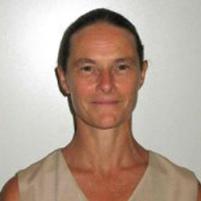Remote student embraces technology she is reliant on
Published on 05 September, 2003
CQU Master of Learning Management student Fiona Brady has embraced the information technology she has become reliant on for work and study in remote parts of Far North Queensland.
She has recently been recognised by the Women in Information Technology (WIT) organisation via a postgraduate scholarship award. (WIT is Queensland’s premier industry association that facilitates support, networking and career development for women working and studying in the information technology and telecommunications industry).
The WIT award citation states that: Fiona is already an active participant of WIT in Cairns where she is working with the Skilling Cape Communities iSTAR project. Living and working in remote regions of Far North Queensland means that Fiona is reliant of ICT for both work and studies. Fiona has recently presented refereed papers at two international conferences centred on the Community Networking and Informatics. She has been selected as this year's winner in recognition of her achievements to date and the additional challenges she will face in completing her studies from her remote geographical location.
 Ms Brady is based in Bloomfield, a town of about 150 people which is 8km from the Wujal Wujal Aboriginal community.
Ms Brady is based in Bloomfield, a town of about 150 people which is 8km from the Wujal Wujal Aboriginal community.
She said that when she first came to Bloomfield there were no telephones and only a weekly mail service.
In the days before the internet, Ms Brady used distance education to complete an honours degree at University of Queensland and a Diploma of Education degree at CQU.
"I have strong interest in technology as a result of my experience — IT means I can access current research and more importantly, communicate with people through email and list servs," Ms Brady said.
"Perhaps the hardest thing about trying to study, or think, when you are 'remote' is the lack of people with whom to informally discuss ideas. IT, and telephone get me by, but I really enjoy conferences where I mix with groups of people working and or thinking in the same field.
"I currently work in the Torres Strait. I work as a financial consultant and workplace trainer for indigenous community councils. I spend two to three weeks a month at several of the outer islands. Travel to the islands is always 'fun' — we go from the salubrious surrounds of the Qantas Dash 8 (with cabin service) to the light aircraft — sometimes three seater, sometimes up to eight seats with our youthful pilots learning their trade in the Torres Strait. To get to work at one of the islands the two plane trips are followed by a ferry (the polite term for an open dinghy) ride. I still enjoy it, there is nothing, just nothing nicer than heading for home on Friday afternoon on a good calm day speeding across the water.
"These islands have very small populations, with few services. However, they do have a strong interest in computers. The past six years has seen a great deal of change in our experience of IT. We have gone from a single standalone computer in the office to intranets with satellite internet access. Local residents are now starting to buy their own computers.
"Again my experience of the effects of distance on people’s choices has prompted my interest in rigorously looking at the opportunities for individuals, organisations and communities through technology. Along with this however I am concerned to look at how people adopt and use new technology and the impact of technology on the community.
"I have conducted a number of research projects based on my work in the Torres Strait over the past four years and have presented some of my work at conferences in Australia and overseas." Ms Brady said she had returned to CQU to complete her masters degree because of the University’s involvement in community informatics.
"From links established at CQU's ITiRA (IT in regional areas) conferences I have gained a world wide perspective on the introduction of IT in less developed regions. This is important for me to contextualise, and conceptualise what is happening, and what we are doing in our remote outer island communities in the Torres Strait.
"I believe it is important that there are people thinking and trying to theorise what is going on in their particular areas with IT. At the same time I am very conscious that the only way that I a can be involved in this activity is through IT."

